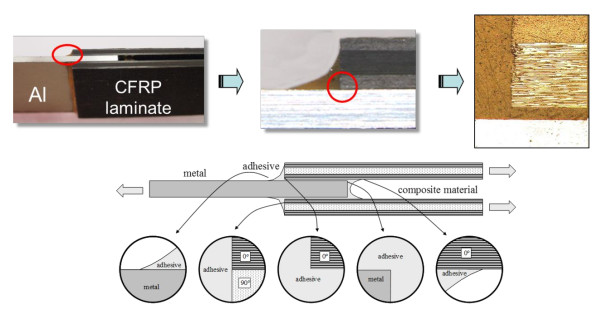Seminar at DEM: Failure Prediction in Adhesive Joints with Composites Using Stress Singularities 13/07/2021
On July 13th, at 2 pm, in the DEM meeting room, takes place the seminar Failure Prediction in Adhesive Joints with Composites Using Stress Singularities by Prof. Alberto Barroso Caro. Due to the pandemic and to have a control over the number of people present, those interested in attending are asked to confirm their presence by email to nuno.manuel.maia@tecnico.ulisboa.pt.
Abstract:
When dealing with adhesive joints between dissimilar materials, points where geometry and materials properties change abruptly often appear. These “multimaterial corners” are critical points where failure can initiate. From a linear elastic point of view, the numerical analysis of these points gives rise to unbounded stresses (stress singularities). Although, in real structures, singularity stresses do not really exist, an approach similar to that used in Linear Elastic Fracture Mechanics has been followed, to try to predict the onset of failure arising at these points. The talk reviews the research and developments during the last years regarding this topic. Analytical, numerical and experimental evidences will be briefly reviewed.

The local singularity stress field has been fully characterized by using Stroh formalism of anisotropic elasticity. Numerical analyses using FEM and BEM have provided the Generalized Stress Intensity Factors. Finally, experimental testing has been carried out to obtain allowable values of the Generalized Thoughness, demonstrating the influence of these stress singularities in the failure of adhesive joints, and composite samples where stress singularities appear. The development of a tool for this stress characterization has also allowed reviewing standard testing of composite materials where premature failures typically occur at multimaterial corners, to suggest slight geometrical changes to remove the local stress singularities and obtain more realistic strength values of the materials.



